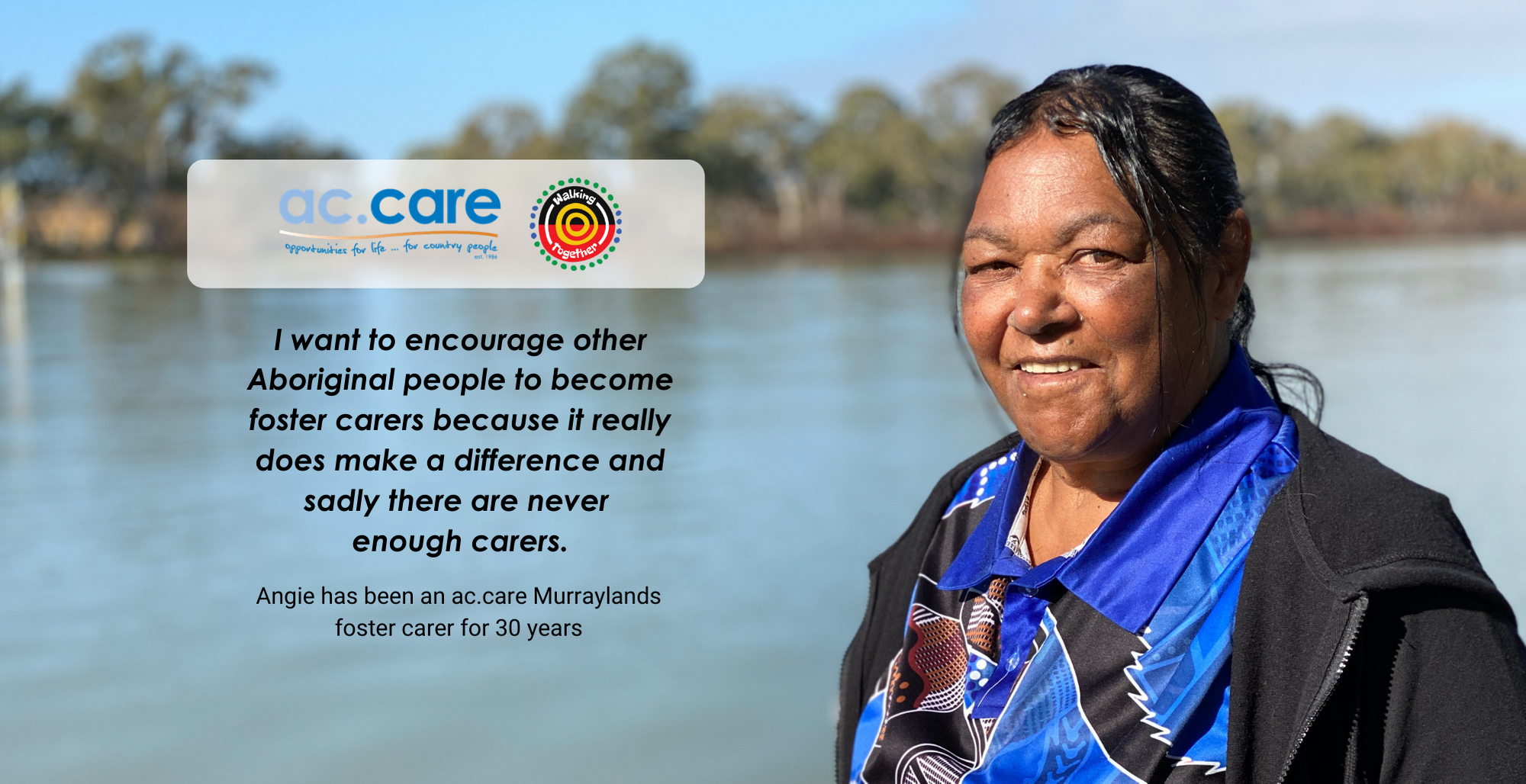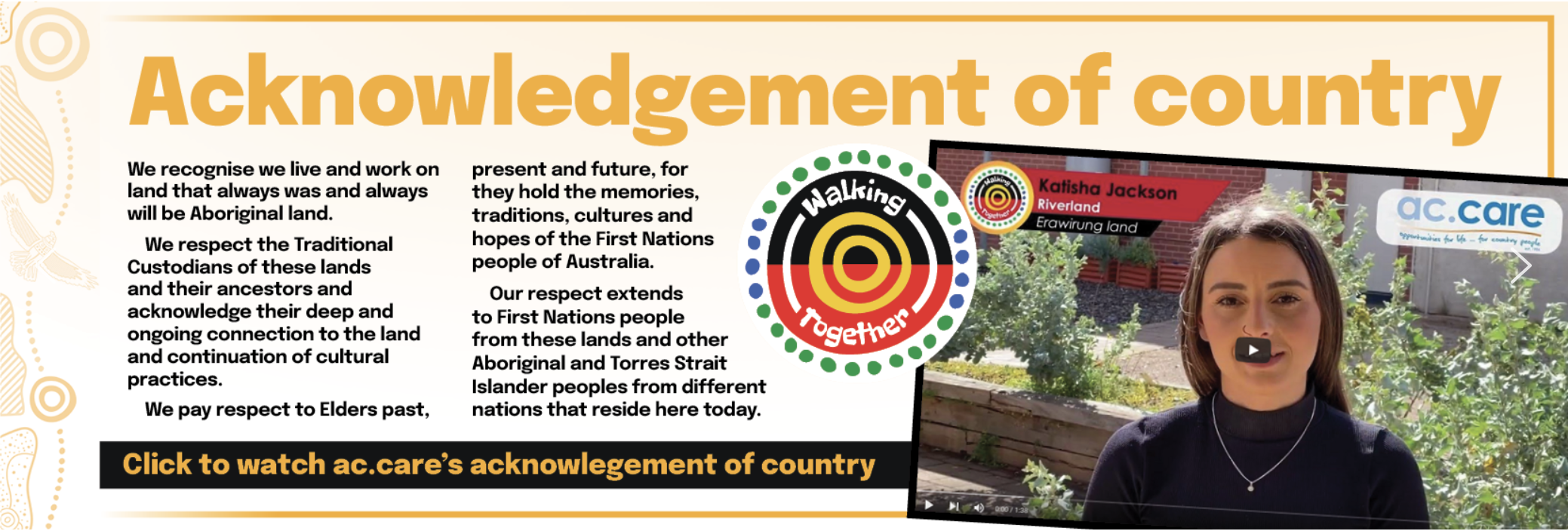WHEN baby Eddie needed a safe home thirty years ago, his Aunty Angie decided to take him in.
Three decades on, her door has remained open to vulnerable young people in need of stability and a nurturing environment.
This year she was recognised for contributing as an ac.care foster carer for 30 years, over which she has welcomed more than 40 children for varying lengths of time, with a focus on Aboriginal young people and keeping the next generation connected to their culture.
“It makes you feel really good to make a difference in young lives,” Angie explained.
Although Eddie now lives on the Eyre Peninsula, Angie remains the first person he calls when he needs someone to talk to after he remained in her care from the age of four months to 18 years.
“Every time something happens, I’m still the first person to get a phone call,” Angie explains.
Angie has always lived in the Murray Bridge and Mannum areas and it was 1990 when her nephew came into her care.
“Eddie stayed with me and then I started taking in other kids as well over the years, as well as having five of my own children,” Angie explains.
“My life would have been a lot different without those kids coming into my life and it would have been different for my children as well – the foster children would always fit in with my children like they were brothers and sisters, which was really great for everyone.”
Angie is among more than 200 foster cares in ac.care’s network across eastern regional South Australia and she feels a family-based home environment provides the best possible opportunities for young people in state care.
“Even if I can only take them in for a few days or weeks until they can find an ongoing placement, it makes a difference, but my goal is always for children in foster care to stay in one place if possible,” Angie said.
She said this was particularly important for Aboriginal children, who should be placed with people from their own culture if possible when they cannot live with their biological parents.
“I’ve seen kids who have been brought up in non-Aboriginal families and it can lead to them ending up confused and not knowing where they belong in some cases,” Angie said.
“It is really important to engage in keeping the cultural connections of young Aboriginal people alive and I try to let them know where they are from and who they are related to just to help maintain their identity.”
She urged other Aboriginal people to consider becoming foster carers to help ensure culturally-appropriate support was available for young people.
“It really does make a difference and sadly there are never enough carers,” Angie said.
Staff at ac.care support a diverse range of new and existing carers across the Murraylands, Riverland, Limestone Coast and beyond to welcome children into their care on short and long-term placements.
“The main support for me over all those years that I’ve been fostering has been ac.care,” Angie said.
“Over the years I’ve always had a good support worker, which makes it easier for me to face challenges as there is always someone I can call.”
Today, many young adults who have previously been in Angie’s care still value her caring relationship, regardless of how long they spent in her home.
“I still have kids ringing me, like one young lad who called recently after his mother had passed away and he wanted to talk to me and I thought that it was lovely I could be there for him,” Angie said
“I suppose when he was going through a tough time he just thought of the people who played a supportive role in his life.”
Meanwhile, her own children have been inspired by growing up in a household where foster children were welcomed, with her daughter also providing placements and her son working in another sector before moving into education.
“He said that was because he had always been around kids, which led to him being employed in schools and he found he loved working with young people,” she said.
“I still take foster children in, although I haven’t for a while because of the COVID issues, but I do allow time for myself these days.”
More information about foster care is available at accare.org.au, by emailing care@accare.org.au or by calling 1300 ACCARE (1300 222 273) during business hours.




